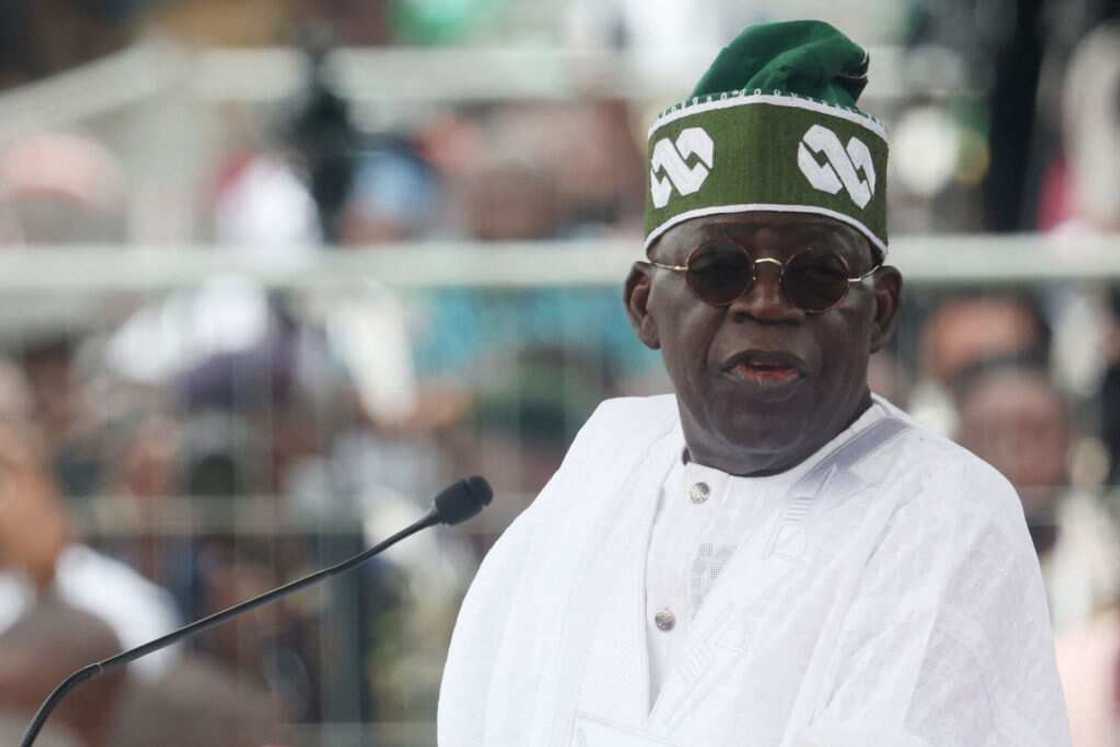Nigeria’s Debt Stock Hits N82 Trillion Amid CBN's Naira Devaluation
- The recent action of the federal government has spiked Nigeria’s debt to N82 trillion
- The country’s debt profile was valued at N77 trillion before the naira devaluation by CBN
- Analysts believe the new debt profile will also attract a vast debt service ratio
Unlock the best of Legit.ng on Pinterest! Subscribe now and get your daily inspiration!
Nigeria’s public debt has risen to N82 trillion from N77 trillion before the Central Bank of Nigeria (CBN) exchange rate unification, announced on Wednesday, June 14, 2023.
According to a press release by the CBN, all exchange rate windows are collapsed into the Importers and Exporters (I&E) window, showing a merger of the multiple exchange rates.

Source: Getty Images
Naira falls to N664 per dollar in the official market
The unification has seen the naira fall to N664 per dollar and has attracted severe consequences for the nation’s economy, including a spike in public debt.
PAY ATTENTION: Share your outstanding story with our editors! Please reach us through info@corp.legit.ng!
Before floating the naira, Nigeria’s debt stock was valued at N448 billion by the Debt Management Office (DMO).
The total debt stock has increased from an estimated N79 trillion to N82 trillion.
Nairametrics reports that the hike is caused by the conversion of the dollar amount of the debt, estimated at $41.6 billion. Adjusted to the new exchange rate, it converts to N27.6 trillion.
The naira amount of the debt stock is estimated to be N54.3 trillion, including CBN’s Ways and Means advances to the Nigerian government.
Expert predicts the impact of devaluation on Nigeria's debt
Taiwo Oyedele of PwC has said the effect of the naira devaluation would be felt mainly by the government regarding its public debt.
Oyedele revealed that the naira devaluation would impact the government. That is, external debt of $42 billion will increase by the difference between the old and new rates.

Read also
CBN's Naira devaluation slashes Aliko Dangote's wealth by over N1.4trn in hours, as 16 billionaires overtake
He stated that Nigeria’s debt to GDP would spike by about 5%, and there would be a corresponding debt service cost regarding a higher tax/revenue to GDP ratio.
He said:
“Corporate tax collection may decline as many businesses crystallize forex losses due to the higher exchange rate. Possible reduction in the budget deficit, if the government’s forex revenue exceeds foreign currency obligations, an increase in the budget deficit, will arise if otherwise.”
Buhari’s government spent 85.37% of its revenue on debt servicing in February, Tinubu inherited N77.8trn debt
Legit.ng earlier reported that the Nigerian government spent over 85% of its revenue servicing debt in February 2023.
The Central Bank of Nigeria said in its monthly economic report for February that the federal government had a retained revenue of N478.57 billion in February.
The apex bank also stated that the Federal Government spent N408.5bn on debt servicing in the same month.
Source: Legit.ng



